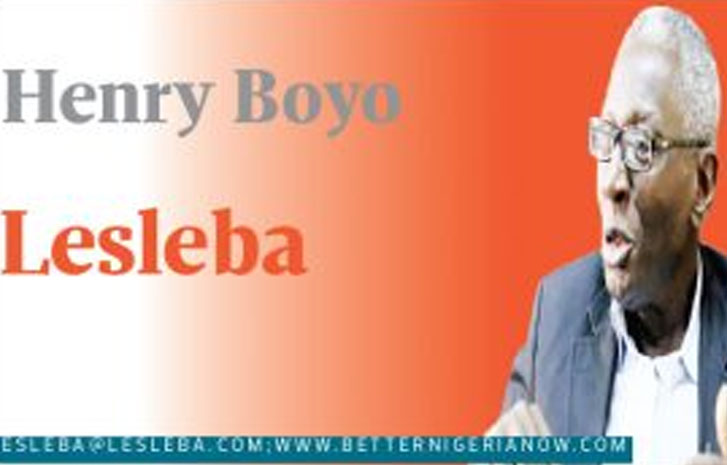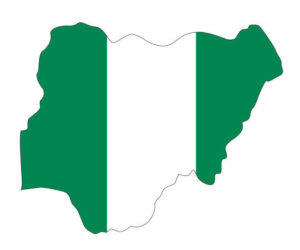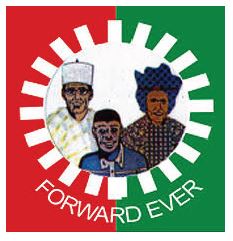1
By: Sir Henry Olujimi Boyo (Les Leba) first published in October 2011
INTRO:
Last week this column republished “Media Disinformation on Government Debt Accumulation” The article shows how the media, like the judiciary, protects the public but also shapes views. By presenting the CBN’s costly liquidity mop-ups as good policy, the media hides harmful borrowing and speculation, making instability seem normal.
(See www.betternigerianow.com for this series and more articles by the Late Sir Henry Boyo)
The republication argues fuel subsidies persist not because of a cartel but due to CBN’s control of foreign exchange, which weakens the naira. Since fuel prices track the naira–dollar rate, this creates the illusion of subsidy. Removing subsidies without reform will only fuel poverty and inflation, while promised benefits are unlikely. The author calls for forex deregulation through dollar certificates to strengthen the naira and end subsidies naturally.
As you read through the below article taking note of previous events or rates, keep in mind its year of publication (2011), a clear indication that Nigeria’s economic situation is yet to improve even after all this time.
In spite of former President Obasanjo’s intimidating presence, his attempts to deregulate the pricing of petroleum products (particularly P.M.S./petrol) hit a brick wall. Consequently, the value of subsidies has steadily increased from less than N100bn a year to over N1,000bn, and may exceed 20% of the proposed 2012 budget according to media reports.
President Jonathan himself has blamed a cartel for the prevalence and rising value of petrol subsidy. Indeed, David Mark, the Senate President and former Kwara State Governor now Senator, have expressed similar views. Inexplicably, in spite of Mr. President’s enormous constitutional powers, neither names nor recommendation for investigation and prosecution of the cartel members are under consideration.
Nonetheless, government continuously extols virtues and the potentially tremendous benefits of breaking the monopoly of the so-called cartel; after all, universally, monopolies are known to create distortions and dislocations in every economy and they are also recognized to promote waste and inefficiency with anti-people pricing!
It is intriguing, however, that in spite of government’s recognition of the ill consequences of the monopolistic market in the petroleum downstream sector, it refuses to acknowledge the destructive and economically poisonous impact of Central Bank’s monopoly of the foreign exchange market; indeed, sadly, government fails to recognize that it is failure to deregulate the foreign exchange market by breaking CBN’s stranglehold on our dollar revenue that is actually responsible for the bogey of fuel subsidy! So, rather than point accusing fingers at a possibly non-existent oppressive cartel, it might surprise Nigerians that government by its own faulty monetary policy management is its own worst enemy!
Several articles on fuel subsidy have been published in this column. Today, my responses to salient questions on fuel subsidy are succinctly captured. The reader is left to decide who to believe!!
1. Is There a Relationship Between Fuel Subsidy and the Naira Exchange Rate?
In reality, there will be no need for fuel subsidy if Central Bank (CBN) adopts a naira and people friendly framework for infusing dollar component of monthly allocations into the economy.
If we cast our minds back, we will recognize that the bogey of fuel subsidy evolved from the dastardly blows to naira and welfare of Nigerians by Babangida’s reckless devaluation of the naira in consonance with IMF’s prescribed Structural Adjustment Programme in the late 1980s.
The reason for this inverse relationship between naira value and fuel price is obvious; fuel prices, like most commodity prices are denominated in dollars; thus, if for example, the international ex-refinery price of P.M.S. (petrol) is about 50 U.S. cents, then, our domestic price will be N75/litre (@ N150=$1) plus shipping/ transportation and clearing charges, plus reasonable profit margin for the importer.
It should be obvious from above that the naira value vis-à-vis the dollar is a significant determinant of local price of fuel. Unfortunately, neither the media nor Labour Unions, nor indeed, government seem to recognize this reality! Consequently, Nigerians are misled into searching for solutions to fuel subsidy removal everywhere else but this one!
Incidentally, if the naira, for example, conversely appreciates to, say, N75=$1, when ex-refinery price of petrol remains at $0.5/litre, then, of course, our domestic pump price will fall in nominal terms to N36.5/litre plus shipping and clearing, plus a margin for the importer! In such scenario, petrol price will become cheaper than the current subsidized rate of N65/ litre. Thus, instead of all the furore on subsidy removal, the government can in fact levy a tax of N10/litre or more on each of the 30 million litres reportedly consumed by Nigerians daily. In addition to projected savings of N1000bn from subsidy removal, almost N400bn can also accrue to government as tax revenue annually.
2. Will Infrastructural Enhancement and Economic Growth be the Product of Subsidy Removal?
If one believes government’s promise of infrastructural enhancement from savings from erstwhile subsidy leakages, then one will believe anything; Nigerians are very familiar with government’s failure to deliver on such promises in the past. For example, the huge infrastructural and social welfare enhancement promised after the Paris/London Clubs debt exit have remained a mirage; meanwhile, we gleefully parted with about $18bn on this false premise of huge debt service charges becoming available for revamping our economy!
Indeed, a fortuitous reserve base in excess of $60bn was whittled down to just over $30bn within four years, and yet, such expenditure has not resulted in any major improvement on our social welfare and infrastructure; if anything, Nigerians have become poorer than we were 12 years ago!
Besides, even if as claimed that the abolition of subsidy might indeed generate savings of about N1000bn a year for government, the reality is that the impact of a deregulated pump price of over N150/ litre for fuel will create a poisonous ripple that will further deepen the extent of poverty nationwide as the purchasing power of all naira income earners plummet from its already precarious level. Ultimately, Nigerians will not witness any significant improvement in infrastructural and social welfare enhancement, while they will continue to slip further into poverty as their paltry naira incomes buy less and less in the market place.
3. What is the Impediment to the Establishment of More Refineries?
We recall that about 20 licences have been granted for private sector sponsored refineries, but understandably, none of these licencees has shown much seriousness to progress the project to completion. In reality, prevailing high cost of borrowing, no businessman is so trusting as to borrow between $500m to $1bn and above with rising cost of funds for a business, whose success depends on government’s usually unreliable and undefined schedule for payback of subsidy differentials from actual market selling price.
On the other hand, the festering sore of corruption, and the eternally rising cost of maintenance of existing refineries should be a warning to desist from pouring more public funds into what is patently a wasteful escapade to build more refineries; besides, there is no evidence of any major government utility that has been efficiently and profitably managed, so why should we trust that government’s fresh forays into such projects will be successful this time around?
In any case, the relevant question is what would be the impact of subsidy removal on Nigerians and national growth and development. How would N150/litre price affect the standard of living of most Nigerians, who live on less than $2 a day?
A combination of the pervasive impact of fuel price hike of such magnitude, with lending rate well over 20% (as can be expected with MPR currently at 12%!) and a naira that is under pressure and widely speculated to fall to about N200=$1, will deal a deadly blow to the welfare of Nigerians as our incomes rapidly lose more value because of the unmitigated rage of inflation. The volatile mix may spur an inflation rate above 20% and reduce the profitability and security of any investment including that of building new refineries.
4. In the Event that Nigeria is a Major Exporter of Crude Oil, is it Not Fair That Nigerians Should Enjoy Subsidy?
My position and recommendation on the appropriate handling of petrol pricing is well articulated in several articles and interviews in both print and electronic media. The concept of fuel subsidy in the Nigerian context is a promotion of waste and an instigation to spiraling inflation with devastating consequences on the welfare of Nigerians.
Nigerians rightly demand that they should enjoy the natural advantage of having crude oil in their backyard. No one can fault such expectations, but inadvertently, the object of the benefit is misplaced!!
The social benefit/advantage of having crude oil should not be seen as controlled or suppression of domestic pump price of fuel, but more importantly and effectively in the enjoyment of a stronger purchasing value of the local currency, the naira! A naira/dollar price determined in a free market by the forces of demand and supply should see naira value appreciating when crude oil output/price increase and a depreciating naira value when the converse is the case. In such a correct market space, the issue of subsidy would become immaterial, as petrol price will fall as naira value improves in a ‘demonopolised’ foreign exchange market.
Regrettably, with the current monetary framework, naira value inexplicably comes under downward pressure with increasing export dollar revenue!! because of CBN’s capture of our export dollar revenue and its substitution with naira allocations to the three tiers of government every month at a unilaterally determined rate. Inevitably, the issue of subsidy will be ever-present with petrol prices always on an upward trajectory for as long as CBN’s inappropriate management of the process of infusing our export dollar revenue into the economy persists.
5. What will be a Beneficent and Sustainable Solution to the Fuel Subsidy Bogey?
The solution to the unnecessary burden of fuel subsidy and the reconciliation of the myriad contradictions and distortions in the Nigerian economy is quite handy and this solution does not require the knowledge of rocket science. Indeed, I have canvassed this same plausible and practical people-friendly framework over the last 10 years. We recognize that markets controlled by monopolies are usually inefficient, distorted and encumbered by a host of leakages. Incidentally, while government recognises these ugly universal features of monopolies, our authorities appear reluctant to break the CBN’s monopolistic stranglehold on our dollar earnings!! The contradictions in our economy and our inability to improve our social welfare and infrastructure in spite of increasing export revenue is the result of CBN’s monopoly of over 80% of market dollar supply and 100% of naira supply at the same time!!
If, however, the CBN adopts the instrument of dollar certificates for payment of export dollar derived revenue allocations, such that the three tiers of government are constrained to directly approach the money deposit banks to convert their dollar certificate allocations to naira sums, the forex market will be deregulated and in place of CBN’s erstwhile monopoly, dollar holdings (as certificates) will become available to 37 state government, 774 local governments, and a myriad of federal government ministries, departments and agencies in a deregulated market. Thus, we will have these dollar holdings directly pitched against existing naira balances in the money market, without the erstwhile disruptive and poisonous deluge of naira, which CBN pumps into the hands of banks every month when hundreds of billions of naira are substituted for the monthly component of relatively nominally modest distributable dollar revenue.
Thus, a market where more and more dollars chase relatively stable naira balances will evolve with naira’s improving value ultimately leading to cheaper petrol prices even without subsidy and the possibility of a per litre petrol tax! This approach will resolve the dilemma of fuel subsidy abolition once and for all time.
SAVE THE NAIRA, SAVE NIGERIANS!








